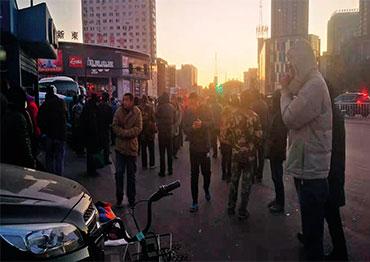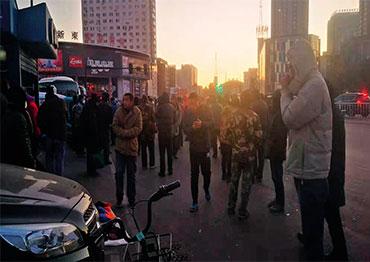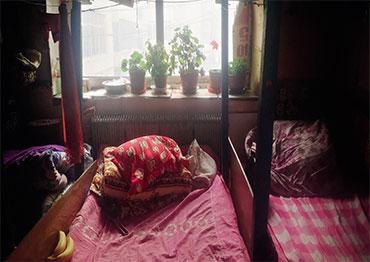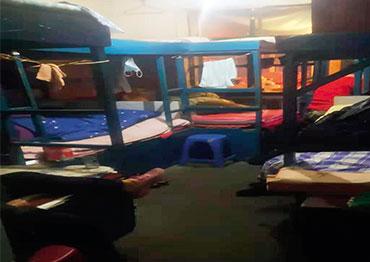When Sun Shiqing said she never saw the documentary nor read articles about her dorm, the reporter pulled one up online. Sun put on her glasses, turned on a small light, and slowly read it, word by word:
“More than 20 women packed the dorm like sardines in a can. Their bed sheets were so worn out they were almost rags,” Sun read, then laughed.
“But indeed, the people here all had hard times,” Sun told NewsChina.
Sun first had the idea of opening a dormitory in 1997, a time of economic reforms when layoffs at State-owned enterprises were common and migrant workers flooded the cities.
She bought an apartment near the Hubei Labor Market and charged 2 yuan (US$0.30) per night for a dorm bed. A month later, the room was full.
Initially she was earning tens of yuan a day, which “was quite enough to live very comfortably at the time.” Several years later, she bought another apartment on the same floor and opened a dormitory for men.
“She developed deep bonds with her tenants. Sun’s son, 43, married a former tenant. The couple has a 15-year-old son. The family now lives in a 158-square-meter apartment and keeps a spare room for her.
But Sun did not intend to move. “These [tenants] are really good people. I don’t want to leave them,” she said.
Compared to hotels, nursing homes and shared flats, Sun’s dormitory was not just about business. It gave residents a sense of warmth, companionship and belonging. It was more like a space that allowed groups of rural migrant workers to live and socialize in a traditional way commonly found in rural society.
Sometimes Sun took in homeless women free of charge. Every day at noon, one of Sun’s friends, also a Buddhist, came to the dorm to share steamed buns.
Every Spring Festival Eve, instead of having dinner at her son’s place, Sun spent it with her lodgers. Sun is vegetarian after becoming a Buddhist in her 60s, and would prepare vegetable dumplings - a traditional holiday food - with her tenants to celebrate the coming year.
In the second half of 2020, media reports about the dormitory and the work Sun was doing became more frequent. In December, less than one month after our interview, Sun closed her dormitory.
“I closed it just because of health problems,” Sun told NewsChina. “I was too tired and needed some rest,” she said, refusing to elaborate.
“The dormitory was once a place where lonely souls could gather and find companionship. By the end of the year, its tenants, old and new, were again scattered and faded into the crowds of the city.

 Old Version
Old Version


